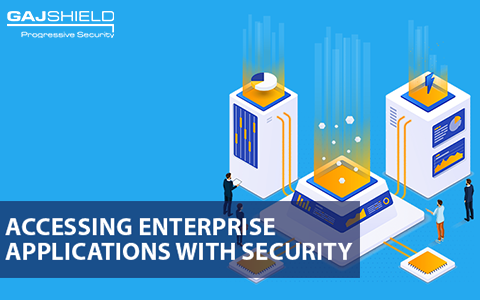Using a VPN to secure remote access to your enterprise applications
These cloud-based remote applications allow employees to access enterprise applications and data from anywhere in the world and at any time. But these applications also increase potential cybersecurity risks.

Remote workers usually use their personal devices and public network to access enterprise applications. These increasing numbers of personal devices increase the surface of security vulnerabilities that can be easily breached by attackers. Hence, to avoid such possibilities, you must use security solutions such as a Virtual Private Network (VPN) to ensure improved data security.
A VPN is a network security mechanism that extends a private network across devices and applications. Hence, it enables users to run applications across public networks while leveraging a private network's security.
A VPN, therefore, becomes the ideal network security approaches for remote working. Employees in a remote workforce usually use their personal or public WiFi connection to access enterprise applications. A VPN network can extend a private network over the public WiFi network, usually used by a remote workforce, to enhance data security. Therefore, it reduces the need to open up your enterprise applications to the internet just for internal usage. Plus, it can route all requests from public networks through your head office firewall to impose security rules on them.
A VPN also implements strict access control to ensure minimum privilege access. This reduces attack vectors available to a hacker.
You can leverage GajShield VPNs to benefit from various data security measures. GajShield provides various industry-standard VPNs based on protocols such as IPSec, L2TP, and PPTP. Our VPNs use various encryption and hash algorithms to avoid any interception in the network.
Get In Touch With Us
Subscribe to our Newsletter
2025 © GajShield Infotech (I) Pvt. Ltd. All rights reserved.
